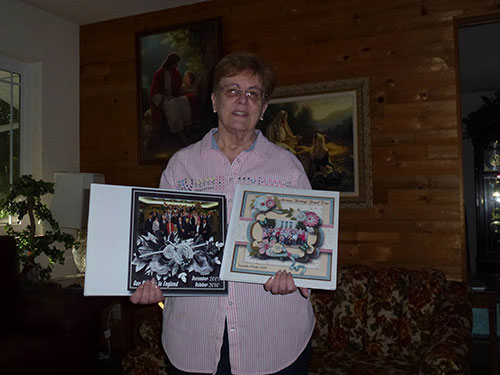
“Family history is quite frequently dull statistics,” says Jackie Krebs Reimers, a family history consultant. “It’s names, dates and places. And you might have pictures. But you don’t know who these people are.”
On the evening of Jan. 20, Reimers presented a program titled, “Making Your Family History Come to Life” to a packed room at Central Park Library. Reimers’ accomplishments include compiling a 200-page book on six generations of her family called the “Krebs-Potter Family History” and writing a book about her husband’s mother, “Delight.”
To manage her research projects, Reimers relies on computers. She looks up old newspapers and performs Google searches. She downloads information from FamilySearch, noting there is a section on this site about Mormon pioneers, such as her great-great grandfathers. She uses Ancestral Quest for saving data information and constructing charts and timetables.
At the event, Reimers talked about a great-great-grandfather on her father’s side. His name was George Wardle, and he was a scout for Brigham Young, who led the Mormon exodus into Utah’s Salt Lake Valley. She also spoke of her great-great-grandfather on her mother’s side. The story she shared about him demonstrated how online information might not always match oral history handed down by family.
“My great-great grandfather on my mother’s side was known as the Terror of Utah; his name was Isaac Smith Potter,” Reimers says. “My mother always told me there was someone on her side who was hung as a horse thief, and the Indians raised a monument to him. The newspapers said he was a horse thief, and that he was killed evading capture. Our family has a different story. The militia captain in Utah was systematically wiping out the [Native American] villages. Men, women, and children were being killed. And my great-great grandfather was friends with some Utes, members of a tribe. When he heard they were going to hit this village, he warned them. And when the soldiers got there, there were only a few old people left who wouldn’t leave, and the soldiers killed them. And within two weeks, my great-great grandfather was branded a horse thief and shot by law enforcement. The people who shot him, they were arrested and were going to be tried for murder. After a lengthy time, they were exonerated. This was during the mid-1800s when Utah was the frontier.”
When asked if she is unhappy with the media for how it reported her great-great grandfather’s death, Reimers responds, “With the old newspapers, the information [the writers] gave was what they were told, what the sheriff told them. It’s good to see both sides of the story, and I don’t ask my readers to believe either side. I ask them to choose for themselves.”
Reimers has five children and 10 grandchildren to pass information on to. “Leave behind stories and photos, records and memorabilia so that you emerge a personality,” she advises. “You want to be a person, not a statistic or just a date and time.”





